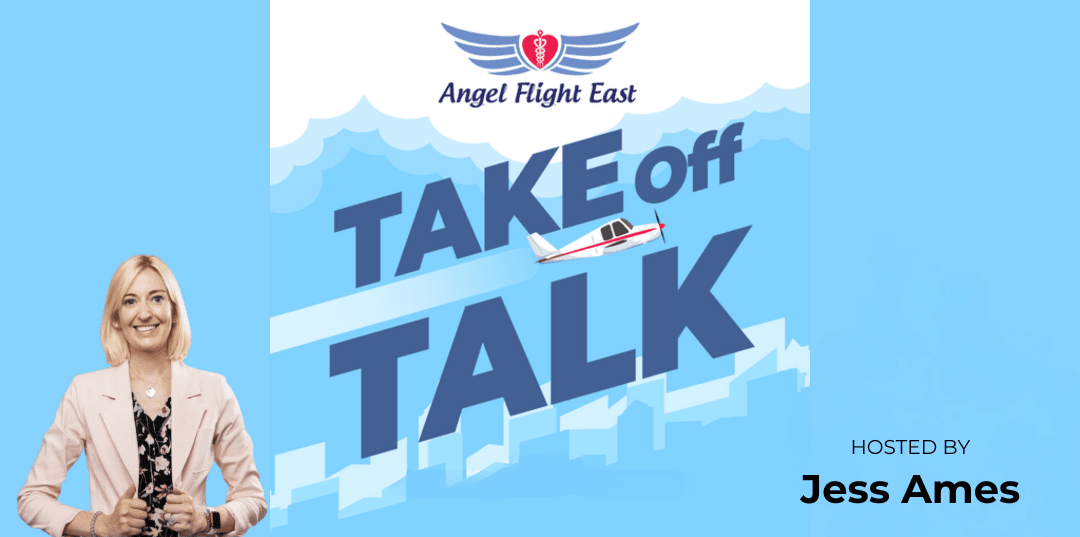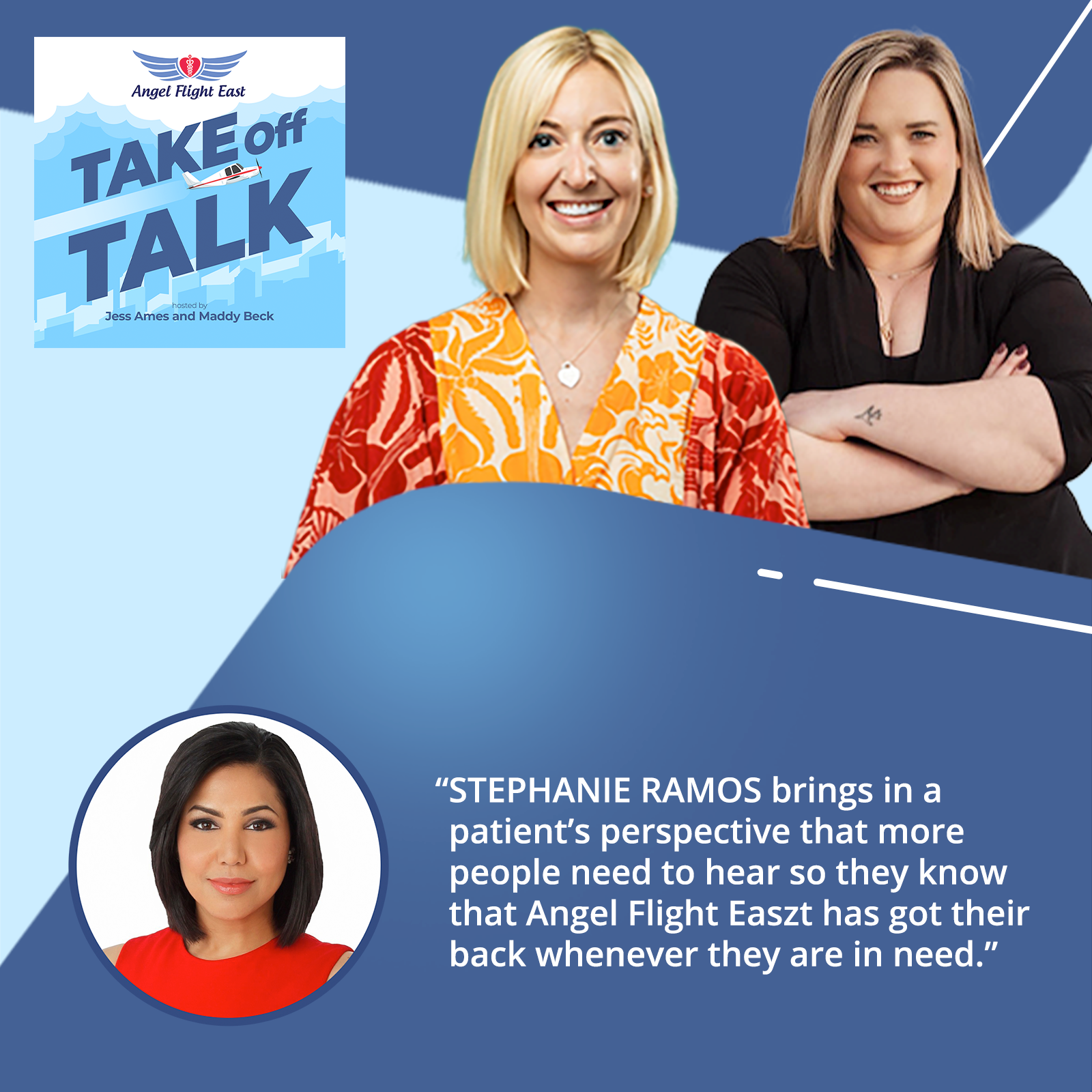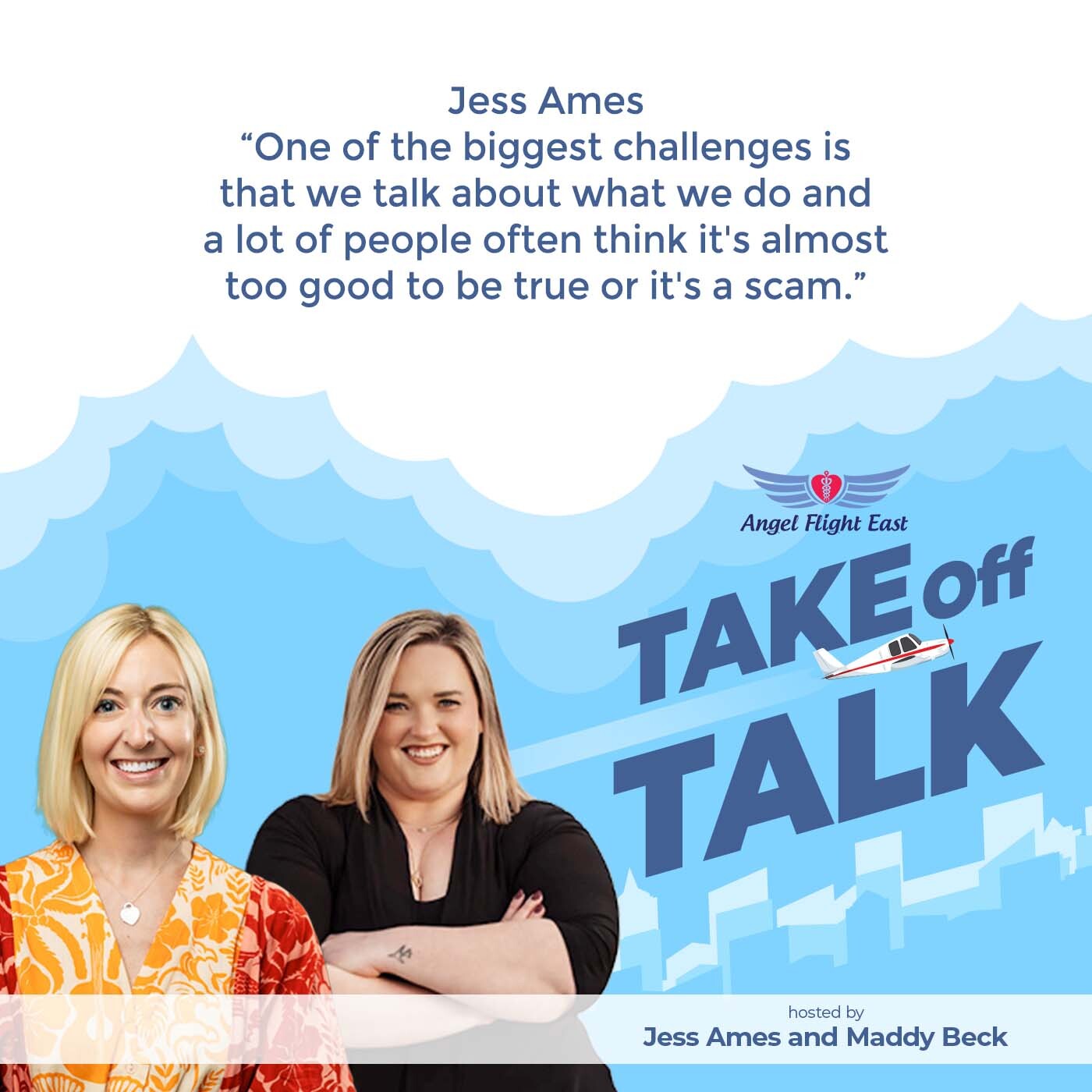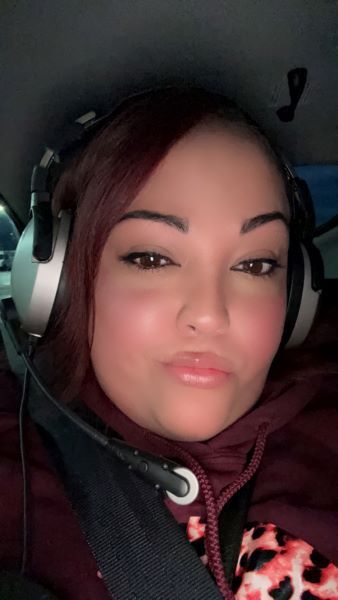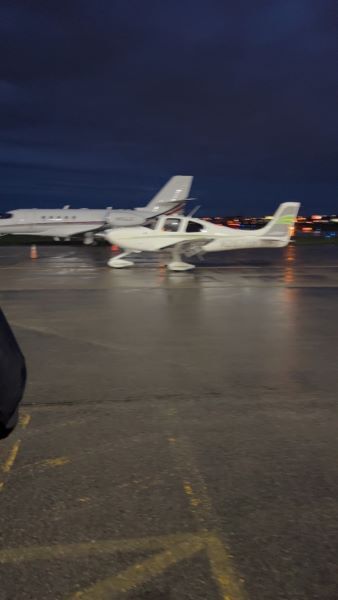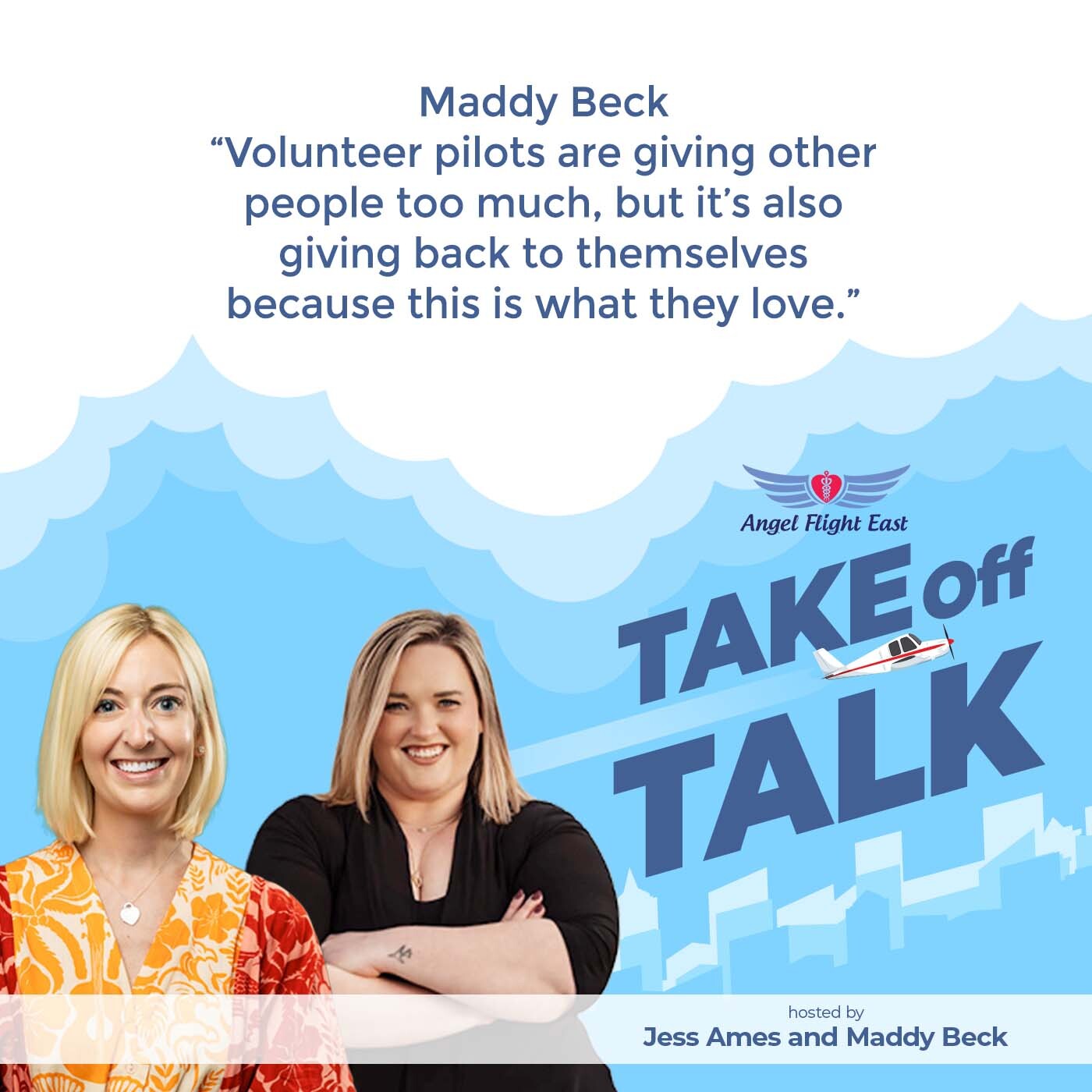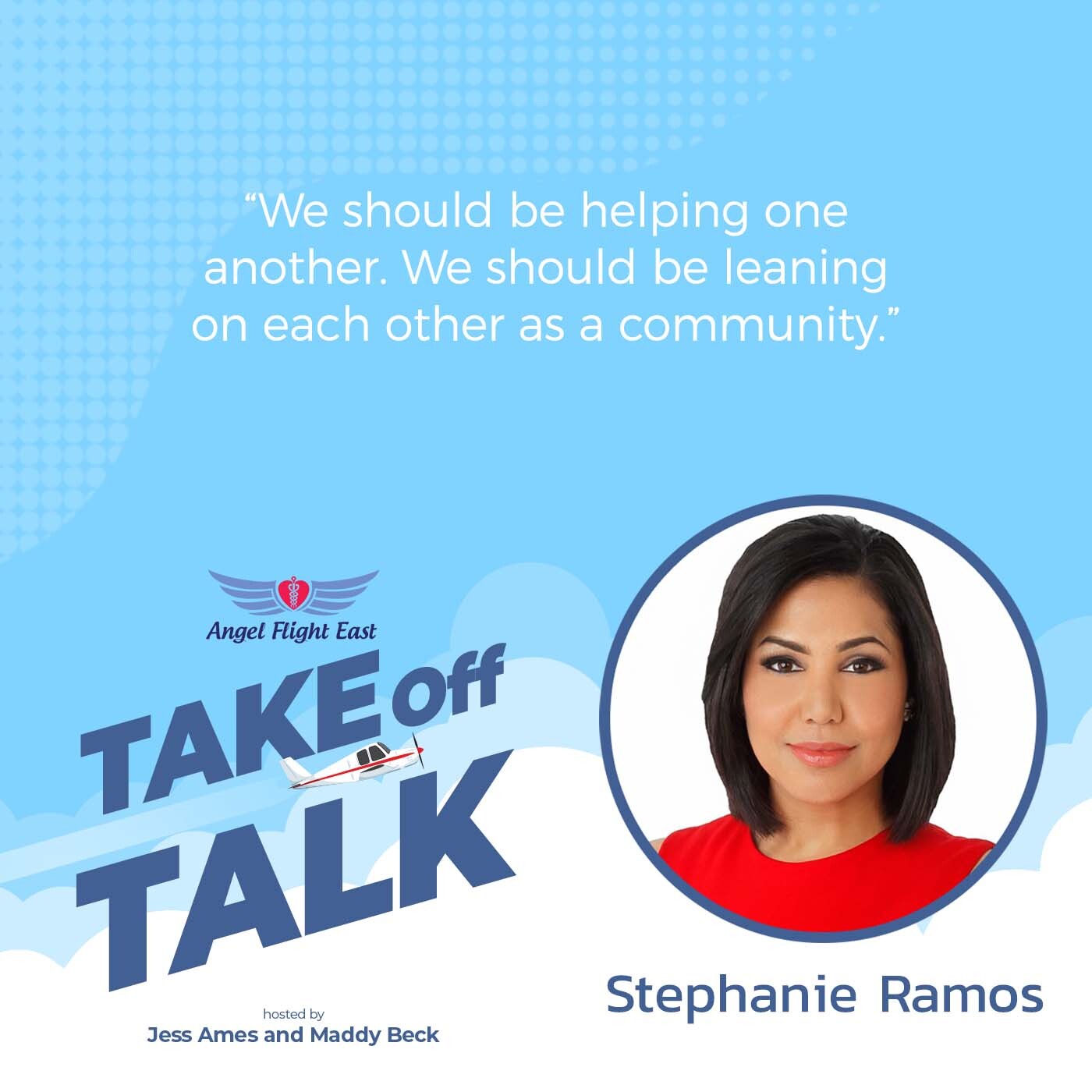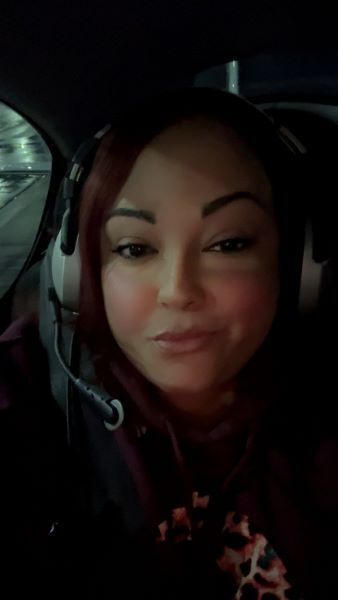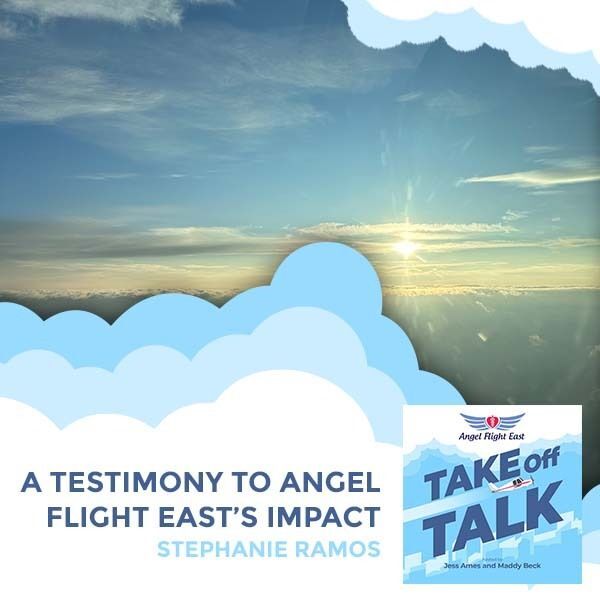
It’s often very hard for many people to wrap their heads around the fact that organizations like Angel Flight East do exist. A lot of times, they are wary and skeptical. After all, who in their right minds would fly medical passengers for absolutely no cost at all? But you’d be surprised just how much volunteer pilots love what they do. Stephanie Ramos as been through this experience as she navigates her journey through sickle cell disease, and she has nothing but good things to say about the organization, the flying experience, and especially the heroic volunteer pilots. Tune in to hear her testimony!
---
Watch the episode here
Listen to the podcast here
In this episode, we have our passenger, Stephanie, with us. Stephanie, to get started, do you want to fill our audience in on, first, what your medical journey has been, your diagnosis, or any of that?
My name is Stephanie Ramos. I am from Rochester, New York, which is Upstate New York. My journey has been a journey. I was born with sickle cell disease. It is a genetic disease that affects your blood cells. They create a sickle-like shape. It unfortunately would cause issues with blood flow. It can cause pain, organ issues, and so forth.
At the age of 25, I had a bone marrow transplant that cured sickle cell disease, but then, we learned about a year after my transplant, I developed something called graft versus host disease. That's what I tell people because my donor was my twin brother. His name is Jordan. I go, “Me and Jordan are fighting. We're having an argument now.” It’s the host and donor having an allergic reaction. My body, even after nine years, still is like, “This still doesn't feel like fully Stephanie.” It's doing its job, but it still has its moments where it's like, “I'm not sure,” which gives me graft versus host disease issues and so forth that comes along with that. That's a short little summary of where I started and where I'm at.
How did you hear about us? We have another passenger from Rochester who is a pretty frequent flyer with us. I'm wondering if they are connected.
I personally do advocacy work for sickle cell disease as well as I'm a community health worker. I try to dip my toes in every community organization in Rochester and outside of Rochester. One of them was an event I went to and there was a representative who spoke about Angel Flight. When I heard about it, I thought it was amazing to know that people can have individuals take them to their appointments that are not home-based, unfortunately, without paying out-of-pocket. I thought that was amazing.
Never in my wildest dream that I thought I would be a flyer with them. I'm very thankful that I have a firsthand experience that when I talk to people about this as a resource for them, I can say, “I've done it. It's safe. The people that work are amazing. They got your back. You have nothing to worry about,” especially with someone who's dealing with chronic illness, whether it's the patient themselves or the parents. We already have 1,000 different things going on in our minds. To know that there are people there that have our backs, are looking out for us, and making sure we get there to the appointment on time safe and sound takes a lot of pressure off of us as being the patient in that moment.
That's amazing. I feel like what you said is perfectly worded from a patient's perspective. For Maddy and I, our biggest challenge as the outreach team is that we talk about what we do and a lot of people often think it's almost too good to be true or it's a scam, or we're going to send a bill at the end of your flight. To have that firsthand experience is incredible.
Let me know if you guys need me to advocate for you guys. I've talked about you guys on social media because it's a good resource. There are a lot of people who lack access to good Medicare because they don't have a way to get there. To know that this is right here and people need to know about it makes me sad but then excited because I can be the one to tell them. I can tell them, “This is awesome. Jump on. They have you. You'll be able to get to your apartment on time safe and sound, and you can reuse them again.”
Angel Flight is just right here. People just need to know about it.
Exactly. I feel like Jess and I’s painstaking statistic that we are dying to figure out is we want to know how many people are forgoing treatment because they can't get there. That seems to be the biggest barrier that most people have. It is figuring out that part. Finances are involved and everything else, but it is when you know that your best chance for your care is 130 miles in another city or whatever the case is.
I was looking at your account before we got on this call. You're still receiving care within the state that you live in. Even then, it is still hundreds of miles away. That's the craziest part that I don't think people get. It's so close but not all at the same time. You think, “It's still in New York. It's in our backyard.” New York is huge. It is not in your backyard.
I won’t lie. I found a GVHD specialist, Dr. Harris, who goes to Memorial Sloan in New York City. I live upstate. That's at least a six-hour drive. When I heard about meeting this amazing team, it broke my heart a little bit because I began to think, “How am I going to get there? Do I have the money to get there? Who can take me?” I'm a good driver, but I've never driven six-hours-and-plus by myself. That started bringing anxiety. My doctor was like, “What about Angel Flight?” I was like, “Angel flight?” As soon as she started talking about it, I was like, “That's right. I know about them.”
To be able to have my first appointment with your help means so much to me because I don't know what I would have done. I probably would've been having to borrow and beg to figure out how to get a plane ticket, train ticket, or bus ticket. To be able to go and go in peace of mind not worrying about a bill means a lot that organizations like you guys are out there for individuals like myself.
You said that your transplant was a couple of years ago. From a couple of years ago to now, what was going on in your journey? Were you already experiencing these host versus graft symptoms and not knowing what was happening? What was going on?
In Rochester, I'm the first adult to be cured of sickle cell disease. I don't know how to say it, but I feel like it was a learning process for me and my team. They didn't really know a lot about GVH. We weren't expecting me to get GVH because I had an almost beautiful, perfect transplant. Everything went as smoothly as it can be. I even got to go home a little earlier because it was so smooth, so it was shocking.
I will never forget. My first symptoms were during one of the Super Bowls years ago. GVH can affect the skin, the mouth, the muscles, your organs, and all these different amazing things in your body. My first symptom was the skin. I had what looked like a rash from the top of my neck all the way to my feet. It was a straight rash. That was the first time I experienced GVH.
They would give you meds like prednisone. It was the only thing that could combat it at that time. It will go away and then come back. Throughout the nine years, it would go away, come back, and get worse. Especially these past few years, it's been back-to-back with flare-ups. That can be very painful for me. It especially affects my mouth. My saliva glands stop working. It affects my teeth, unfortunately, so there's tooth loss there. I'm a speaker. This is what I like to do. I love speaking and educating, so it's a hard hit knowing that my mouth is being affected by this disease.
We're at a point where I was able to see a specialist. Now there is more medication to combat GVH than there was years ago. It didn't exist. I take something called Jakafi and Rezurock. These medications came out in the past couple of years. I'm lucky to not be on these medications to combat the flare-ups a little bit more. My body should have a little break between them at least. I started the Rezurock. I'm starting on that journey so I don't really have results yet. It has to take its time, but I'm very hopeful that it's going to do its job, for sure.
That's so interesting.
Looking at you, you're beautiful. I would not even think you had anything wrong with you. That's how a lot of our patients are too. People are like, “Are they really sick?” You never know what's going on in people's lives.
I was thinking that you are the poster child of invisible diseases. We look at you and you are one of us.
It's sad, but we learn to hide it really well. It takes a lot of years of practice, for sure.
How was your experience with Angel Flight? I knew you flew twice with us, I believe.
I did fly once. I was supposed to fly, but I caught the norovirus and ended up in the hospital.
That's awful.
I'm so upset, but even with that, the pilot was like, “It's okay. Please get better.” He didn't even know me. We haven't even met yet and he was like, “Rest. When you're ready, call Agent Flight again. We'll pick you up and take you to your appointment once you reschedule.” Even that was nice. In my first experience, my mom went with me so it was an experience together.
The pilots were awesome. They were like, “Are you okay? Do you need anything? Are you good?” They were checking in on us during the flight and making sure we were comfortable. If we had any questions, they answered it. They tried to get me there on time. I forgot how big New York City is. Even though we got there in a good amount of time, we were still short on time because of the traffic. I forget I live in the upstate. It’s a different vibe than in the city. I took a couple of pictures in the plane, outside of the plane, and so forth. It was really cool to be in such a small plane. It was the whole experience of doing it with my mom and we have this memory together. It was a lovely experience.
The pilots are what makes it human-like and connected. People may or may not know. They volunteer for this. They take their time out of their day and say, “I want to go help a family or an individual who's ill and needs to see their doctor right away. I'm going to go do it. I don't care.” From my understanding, they wake up really early because the flights are usually early in the morning to make sure I'm at my doctor's appointment on time. That in itself is something I'm very thankful for.
The pilots are the best. I want to say that we love to make fun of our pilots but in a loving way. When you know our personalities, if we make fun of you, it means we really like you. I'm sitting here thinking about all the pilots that we have within our organization and how excited they get to be able to go and do these flights or to be able to fly in general. Everybody who hears these stories is like, “They're giving so much.” They are, but it's also giving back to themselves because they're like, “This is what I love. This is the best part of my day.”
The second pilot that took me home was so tall. This man had to be 6’3” or something and his plane was so small, but he perfectly fit. It was so funny. I wish I had taken a picture because he was extremely tall but he fit perfectly in, and we did as well. Whenever you see a small airplane, it’s the looks. The inside is usually more roomy than what you think of looking at it.
They're so humble too. We always try to brag about them. We put them in front and center of our presentations and they get embarrassed. Some of them don't want any recognition. We're like, “You do such an amazing thing that is so big in all of our eyes,” but they think, “I was going to fly somewhere anyway. Why not take someone where they need to go?” From our perspective, it's incredible. We always say they do the hard part and we do the easy part, which is coordinating and talking about it to get the word out there. Without our pilots, we wouldn't have Angel Flight.
Without our pilots, we wouldn't have an Angel Flight.
I agree with that. Their view on it that I can see is we should be helping one another. We should be leaning on each other as a community when someone is going through something. That's the feeling I get with this organization. You’re like, “Do you need help? Do you need to get somewhere? We'll be there. We'll guide you and get you where you need to be.” It's been a nice experience. I can't wait to meet even more different pilots and get to know them personality-wise and so forth.
That's awesome. I love it. I love to hear all of our patients' stories because everybody’s story is so different, but their experience with Angel Flight is so consistent. Everybody has had that pilot who goes above and beyond literally, but also to be able to help somebody different and help somebody they've never met. It makes my heart happy.
When we were going home, our flight was supposed to be an hour or maybe 30 minutes. It turned into two hours because we had to get rerouted because it was raining or something. We were like, “We're going to be here even longer.” He was like, “Everything's fine. It's going to be a little late, but I'd rather be safe than sorry than them telling us to go this way or take it the way they're guiding me to make sure you get home safe.”
I live in Rochester, but many of the pilots are not from Rochester. They're from other parts of New York. That's awesome because I can meet different people from different parts of my state that I don't know. Sometimes, you can hear the accent. You can hear the difference of who lives where, like closer to Jersey or whatever, which I love. I love that.
Those are our people.
I'm a Philadelphian. Jess is a suburbanite. The accents always get me. I love it.
I love it.
How would you describe flying in a small airplane to our audience?
I won't lie. When you think of a small plane, you go into like, “I'm going to be cramped up and everything.” The outside looks small but a lot of them are more roomy on board. There are different models of the plane. Some pilots have newer models of it. Some have old-school models of it. I was able to experience both because one pilot had a newer version and another pilot had an older version.
You can see the difference in the setup, the decorative, furniture-wise, or whichever. With the newer model, I feel like it's a bit more spacier than the older model planes, which I did enjoy because I was traveling with someone else. That elbow room was really lovely. You're not like sardines. You sit in your seat. You're in a comfortable seat like you would be on any airplane on board. That anxiety of like, “It's too small,” didn't affect me. Once I was able to sit down, put my seatbelt on, and then calm down, I realized it wasn't as bad as I thought it was going to be size-wise.
Exactly. I used to tell people all the time it's like flying in a two-door car or driving a two-door car and you’re sitting in the back seat. That's awesome. What is one final thought that you want to leave our audience with?
Take advantage.
Take advantage of us. I love that.
There are resources out there. There are organizations there for us to tap into. We do know that many people with chronic illnesses and families are usually lower income-wise and how much they're bringing home. The idea of having to travel, gas, or whether there's a ticket on the train, a bus, or a plane adds up. Take advantage when there are organizations like this within your community that you can tap into and use time and time again. Share with others. You don't know how many people you can help by spreading the information about your experience.
I'm going to keep using them. As long as they keep allowing me to jump on board, I'm going to keep using them because they make sure everything is safe. They make sure you're comfortable. I don’t know if people know this. They make sure you even have a ride to your appointments because they get an Uber for you. I didn't even realize this until I got to New York. They were like, “We have an Uber ready for you to take you to your appointments.” I thought that was nice altogether. It’s one last thing to worry about as a patient traveling to see a doctor. Take advantage of organizations like this for information. You don't know how many people or families you can help in the long run.
Thanks so much. This was awesome.
That’s amazing. Thank you so much.
Thank you for having me on.
‐‐‐
What a nice lady. I love her.
She’s so nice.
She's so bubbly.
I know.
Are we that bubbly?
No. The story that I was going to say but I was like, “She's so upbeat. I can't tell her this,” was the one time I was talking to one of our pilots. He told me a story about how he was flying commercially somewhere and somebody had said something along the lines of like, “Is there a doctor on board?” Apparently, this wonderful pilot of ours told his neighbor sitting next to him, “I am a pilot in my life. I like to fly. I’m not a professional pilot.” This guy does not fly an airplane professionally. He told him, “I hope one day, they say, ‘Is there a pilot on board?’ so I can go up and fly the plane.” The person next to him was like, “Never say that ever again.” That's the only thing I could think about.
Who was it?
Chris Zant.
It seems like something he would say.
Every time I think about any of that kind of stuff, I'm like, “These pilots, I don't think you understand how excited they get about airplanes.”
We have to put Chris Zant on here.
They can hang out with us.
We hope to see you in the next episode.

